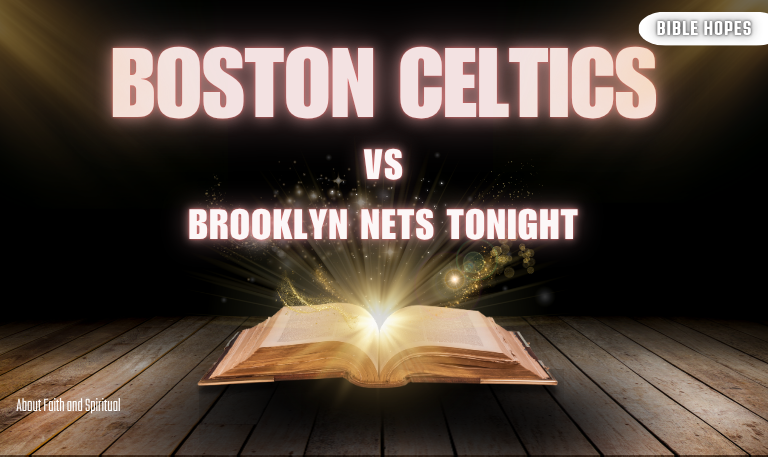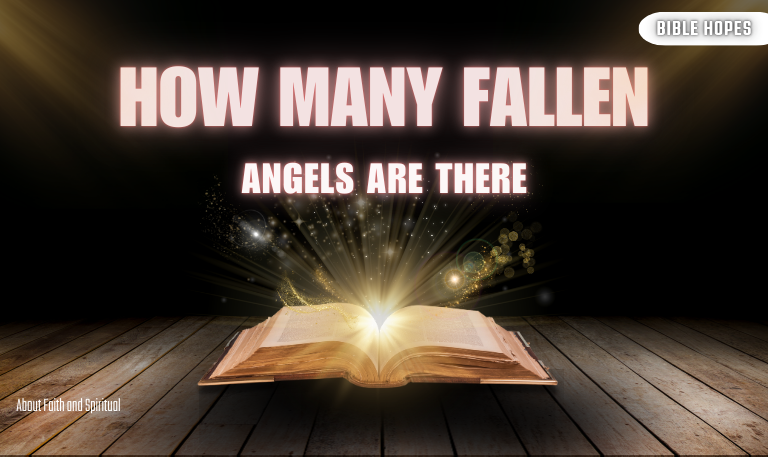In the world of Christianity, the Catechism and the Bible are both foundational texts, each playing a distinct but complementary role in shaping the faith of millions. While the Bible is regarded as the holy scripture, divinely inspired and revered as the ultimate authority for Christian beliefs and practices, the Catechism serves as a teaching tool, summarizing the core doctrines of the faith. This article will explore the differences between the Catechism vs Bible, their historical significance, theological importance, and how they intersect in the lives of modern Christians.
What is the Catechism?
The Catechism is a summary of Christian doctrine, often presented in the form of questions and answers. Its primary purpose is to teach the essentials of the faith, including the nature of God, the role of Jesus Christ, salvation, and the sacraments. The Catechism is used in various Christian denominations, especially in Roman Catholicism, as a guide for religious education and spiritual formation.
Historical Background of the Catechism
The development of the Catechism dates back to the early church when catechists (teachers of the faith) would instruct new converts using simple, concise statements. Over time, these teachings were compiled into written forms. Notable milestones in the history of the Catechism include:
The Apostles’ Creed: One of the earliest catechisms used in the Christian church to instruct new believers.
The Catechism of the Catholic Church (CCC): The most authoritative Catechism for Catholics, published in 1992, and widely used for teaching the faith.
The Catechism is primarily a tool for religious education, designed to help believers understand and articulate their faith in a structured, accessible way.
Read Also: How Tall Was Adam in the Bible
The Purpose and Role of the Catechism
A Teaching Tool: The Catechism organizes Christian doctrine into manageable sections, making it easier for individuals, especially children and new converts, to understand the essentials of Christianity.
Doctrinal Authority: The Catechism carries a special theological weight, particularly in Catholicism, as it reflects the teachings of the Church based on scripture, tradition, and the magisterium (the teaching authority of the Church).
Practical Application: It offers practical guidance for living the Christian life, including prayers, the Ten Commandments, and an explanation of the sacraments.
What is the Bible?
The Bible is the sacred scripture of Christianity, composed of two primary sections:
The Old Testament: The Hebrew scriptures, which are also central to Judaism, recount the history of Israel, the laws, prophecies, and wisdom literature.
The New Testament: A collection of writings that focus on the life, teachings, death, and resurrection of Jesus Christ, as well as the early Christian church’s teachings and history.
History and Compilation of the Bible
The Bible was written by various authors over centuries and was canonized into the form we have today. The Old Testament was largely written in Hebrew, while the New Testament was primarily written in Greek. The Bible’s formation involved rigorous processes of recognition and selection, and different Christian denominations have slight variations in their biblical canons.
Old Testament: Consists of historical, poetic, and prophetic books, including the Torah (the first five books of Moses), historical accounts, Psalms, and the writings of the prophets.
New Testament: Includes the Gospels, which record the life and ministry of Jesus Christ, the Acts of the Apostles, the letters (epistles) written by early church leaders like Paul, and the Book of Revelation.
The Bible’s Authority in Christianity
The Bible is regarded as the primary source of divine revelation for Christians. It is seen as inspired by God and is considered the ultimate authority in matters of faith and practice. Christians believe that the Bible provides timeless truths about God, humanity, salvation, and how to live a righteous life.
Read Also: Does God Change His Mind in the Bible
Key Differences Between Catechism and Bible
While both the Catechism and the Bible are crucial in the Christian faith, they differ significantly in their nature, content, and role.
Nature and Function
The Catechism: A structured summary of Christian beliefs, designed primarily as an educational tool. It explains the core doctrines of the Church and offers a way to learn and teach the Christian faith systematically.
The Bible: A collection of sacred writings, inspired by God, which serves as the foundational text for Christian life and faith. It includes narratives, teachings, wisdom literature, and prophecies, offering comprehensive guidance on living according to God’s will.
Content
The Catechism: Organized in a Q&A format, it distills Christian teachings into clear, digestible points. It covers topics such as the Ten Commandments, the Creed, the Lord’s Prayer, and the sacraments.
The Bible: Contains historical accounts, laws, poems, prophecies, wisdom literature, and teachings of Jesus. The Bible is vast and complex, consisting of diverse literary forms.
Theological Authority
The Catechism: While authoritative, it derives its teachings from the Bible, Church tradition, and the magisterium. It is a guide to understanding Christian doctrine as interpreted by the Church.
The Bible: Considered the highest theological authority in Christianity, as it is believed to be divinely inspired. It is seen as the unchanging word of God.
Purpose in Christian Life
The Catechism: Primarily a tool for learning and teaching Christian beliefs, especially for new believers, children, and catechists.
The Bible: The primary text for worship, spiritual guidance, and daily living. It is the source of all Christian teachings and practices, offering both doctrine and narrative for spiritual growth.
Catechism and the Bible in Catholicism
In Catholicism, the Catechism is not a replacement for the Bible but serves as an essential companion to scripture. The Catholic Church teaches that the Bible must be interpreted within the tradition of the Church, and the Catechism provides a framework for understanding scripture.
Read Also: Who Owns the Copyright to the Bible
The Catechism of the Catholic Church (CCC)
The Catechism of the Catholic Church (CCC) is the authoritative text used by Catholics to teach the essentials of the faith. It explains the Bible’s teachings in the context of Church tradition and doctrine.
The CCC serves to:
Provide a systematic summary of Catholic beliefs.
Offer scriptural references for each point of doctrine.
Assist in catechesis (teaching the faith) in schools and parishes.
The Relationship Between the Catechism and the Bible
Catholics see the Catechism as a guide to interpreting the Bible correctly. The Church teaches that the Bible is divinely inspired, but it must be understood within the context of Sacred Tradition and the Magisterium (the Church’s teaching authority).
Catechism and the Bible in Protestantism
Protestants emphasize the Bible as the sole authority (Sola Scriptura), meaning the Bible is the primary and final source of truth. While some Protestant denominations do use catechisms, they typically emphasize direct Bible study and personal interpretation.
Protestant Views on Catechism and Bible
Catechism: Protestants use catechisms in some traditions, such as Lutheranism, but they are not considered as authoritative as the Bible itself.
Bible: In Protestantism, the Bible is regarded as the only authoritative source of Christian doctrine and practice.
Read Also: Delayed Prayers
How Catechism and Bible Complement Each Other
While the Catechism and the Bible differ in content and authority, they complement each other. The Catechism interprets and explains the Bible’s teachings in an organized manner, making it accessible and understandable for believers.
The Bible, on the other hand, offers the full depth of God’s word, providing both historical narrative and moral instruction. Together, the Catechism and Bible help Christians live a full spiritual life by teaching both the beliefs and the practices of Christianity.
Catechism vs Bible FAQs
Q: What is the difference between the Catechism and the Bible?
A: The Catechism is a structured summary of Christian doctrine, designed to teach the essentials of the faith, while the Bible is the sacred scripture containing the teachings, history, and prophecies of Christianity.
Q: Can the Catechism replace the Bible?
A: No, the Catechism is not a replacement for the Bible but a tool to help interpret and understand it more clearly. The Bible is the primary source of Christian doctrine.
Q: Do Protestants use the Catechism?
A: Some Protestant denominations use catechisms, particularly in traditions like Lutheranism, but Protestantism generally emphasizes Bible study over catechetical instruction.
Q: How is the Catechism used in Catholicism?
A: In Catholicism, the Catechism is used to teach and explain the core doctrines of the faith, with reference to scripture and Church tradition.
Q: Why is the Bible considered more authoritative than the Catechism?
A: The Bible is considered divinely inspired and is the ultimate source of Christian teachings, whereas the Catechism is a secondary, interpretive text that summarizes and explains those teachings.
Conclusion
In conclusion, both the Catechism and the Bible are integral to understanding and living out the Christian faith. While the Bible is the inspired word of God and the ultimate authority in Christianity, the Catechism serves as a helpful guide for teaching, interpreting, and applying biblical doctrine. Each serves a distinct yet complementary role, helping believers deepen their faith and live according to God’s will.
By understanding both the Catechism and the Bible, Christians can more fully grasp the depth and richness of their faith, while using these texts to guide their spiritual journey.
![Catechism vs Bible | Understanding the Key Difference [2025] 1 Catechism-vs-Bible-Understanding-the-Key-Difference-[2025]](https://biblehopes.com/wp-content/uploads/2025/06/Catechism-vs-Bible-Understanding-the-Key-Difference-2025.png)


![15 Pink Bible Verses | Discover Meaning, Love [2025 Guide] 5 15-Pink-Bible-Verses-Discover-Meaning,-Love-[2025-Guide]](https://biblehopes.com/wp-content/uploads/2025/05/15-Pink-Bible-Verses-Discover-Meaning-Love-2025-Guide.png)